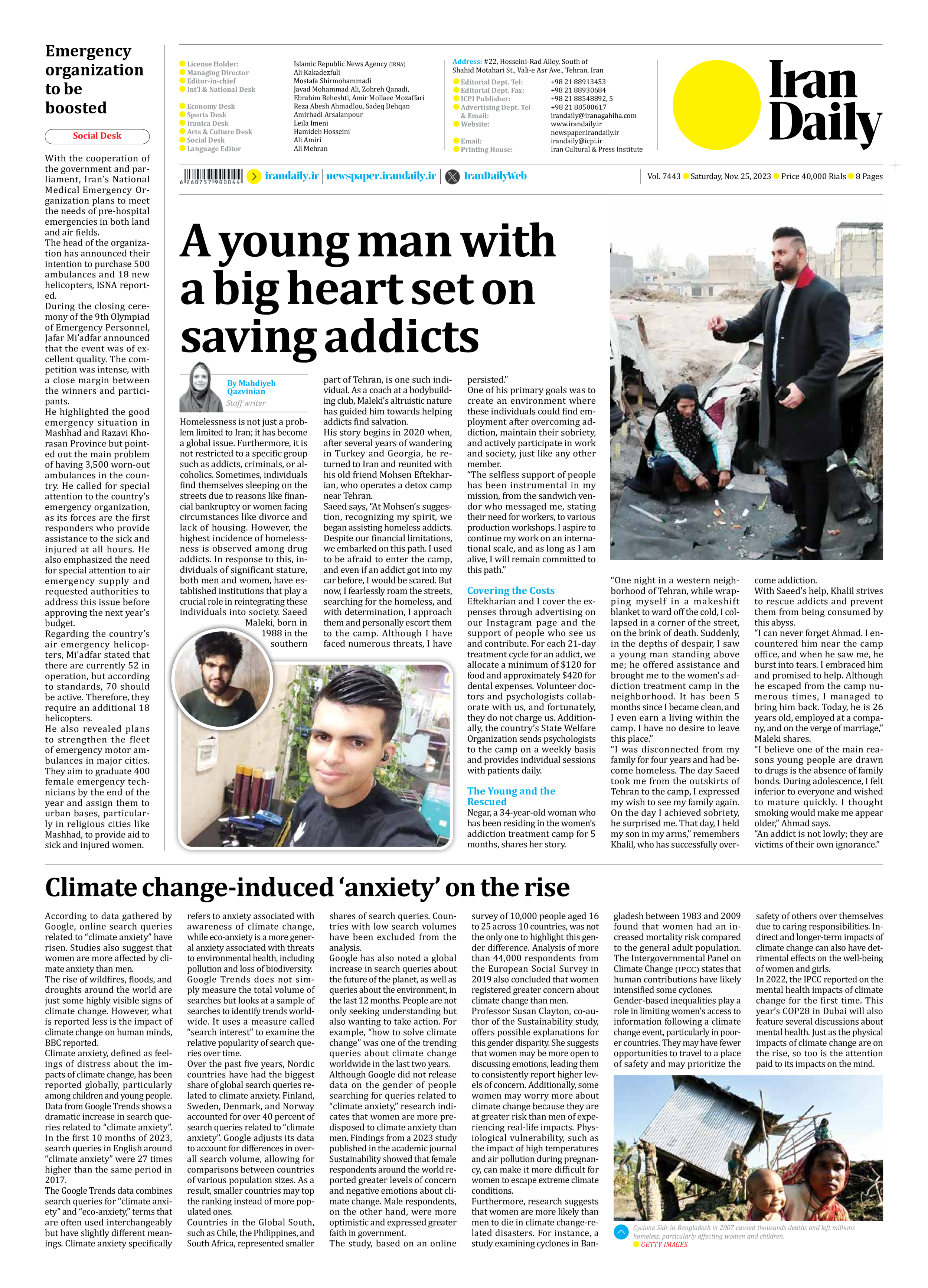
Climate change-induced ‘’ on the rise
According to data gathered by Google, online search queries related to “climate anxiety” have risen. Studies also suggest that women are more affected by climate anxiety than men.
The rise of wildfires, floods, and droughts around the world are just some highly visible signs of climate change. However, what is reported less is the impact of climate change on human minds, BBC reported.
Climate anxiety, defined as feelings of distress about the impacts of climate change, has been reported globally, particularly among children and young people. Data from Google Trends shows a dramatic increase in search queries related to “climate anxiety”. In the first 10 months of 2023, search queries in English around “climate anxiety” were 27 times higher than the same period in 2017.
The Google Trends data combines search queries for “climate anxiety” and “eco-anxiety,” terms that are often used interchangeably but have slightly different meanings. Climate anxiety specifically refers to anxiety associated with awareness of climate change, while eco-anxiety is a more general anxiety associated with threats to environmental health, including pollution and loss of biodiversity.
Google Trends does not simply measure the total volume of searches but looks at a sample of searches to identify trends worldwide. It uses a measure called “search interest” to examine the relative popularity of search queries over time.
Over the past five years, Nordic countries have had the biggest share of global search queries related to climate anxiety. Finland, Sweden, Denmark, and Norway accounted for over 40 percent of search queries related to “climate anxiety”. Google adjusts its data to account for differences in overall search volume, allowing for comparisons between countries of various population sizes. As a result, smaller countries may top the ranking instead of more populated ones.
Countries in the Global South, such as Chile, the Philippines, and South Africa, represented smaller shares of search queries. Countries with low search volumes have been excluded from the analysis.
Google has also noted a global increase in search queries about the future of the planet, as well as queries about the environment, in the last 12 months. People are not only seeking understanding but also wanting to take action. For example, “how to solve climate change” was one of the trending queries about climate change worldwide in the last two years.
Although Google did not release data on the gender of people searching for queries related to “climate anxiety,” research indicates that women are more predisposed to climate anxiety than men. Findings from a 2023 study published in the academic journal Sustainability showed that female respondents around the world reported greater levels of concern and negative emotions about climate change. Male respondents, on the other hand, were more optimistic and expressed greater faith in government.
The study, based on an online survey of 10,000 people aged 16 to 25 across 10 countries, was not the only one to highlight this gender difference. Analysis of more than 44,000 respondents from the European Social Survey in 2019 also concluded that women registered greater concern about climate change than men.
Professor Susan Clayton, co-author of the Sustainability study, offers possible explanations for this gender disparity. She suggests that women may be more open to discussing emotions, leading them to consistently report higher levels of concern. Additionally, some women may worry more about climate change because they are at greater risk than men of experiencing real-life impacts. Physiological vulnerability, such as the impact of high temperatures and air pollution during pregnancy, can make it more difficult for women to escape extreme climate conditions.
Furthermore, research suggests that women are more likely than men to die in climate change-related disasters. For instance, a study examining cyclones in Bangladesh between 1983 and 2009 found that women had an increased mortality risk compared to the general adult population. The Intergovernmental Panel on Climate Change (IPCC) states that human contributions have likely intensified some cyclones.
Gender-based inequalities play a role in limiting women’s access to information following a climate change event, particularly in poorer countries. They may have fewer opportunities to travel to a place of safety and may prioritize the safety of others over themselves due to caring responsibilities. Indirect and longer-term impacts of climate change can also have detrimental effects on the well-being of women and girls.
In 2022, the IPCC reported on the mental health impacts of climate change for the first time. This year’s COP28 in Dubai will also feature several discussions about mental health. Just as the physical impacts of climate change are on the rise, so too is the attention paid to its impacts on the mind.







